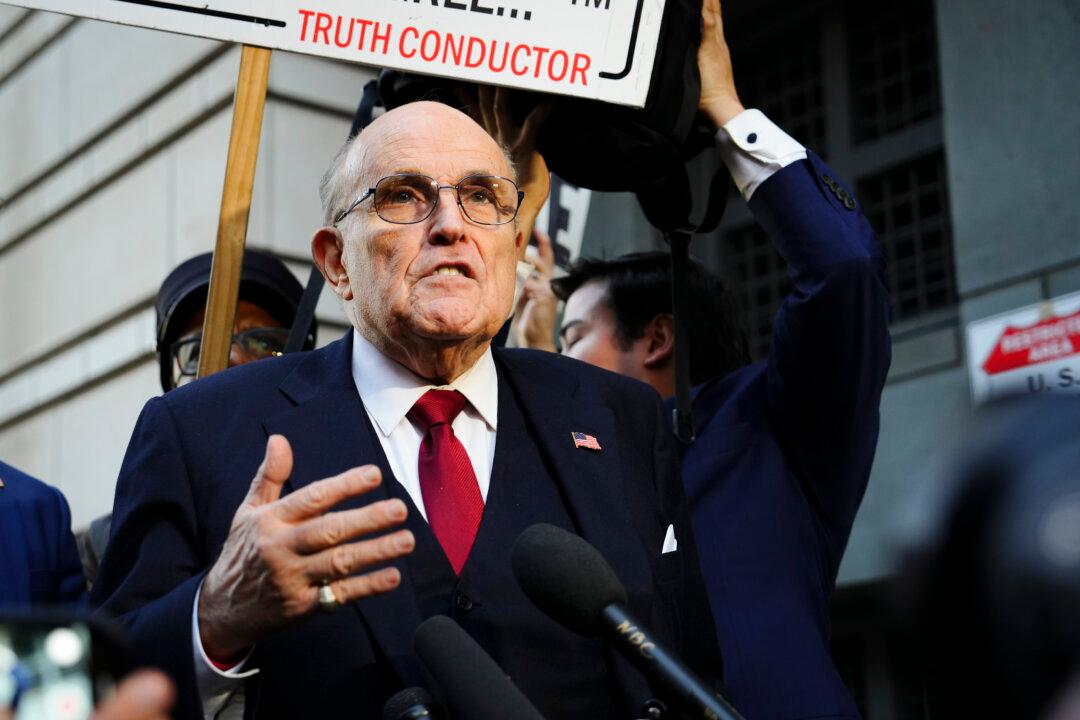Former New York City Mayor Rudy Giuliani has filed for bankruptcy protection, a day after being ordered to pay $148 million immediately to two former Georgia election workers who sued him for defamation while he was a lawyer for former President Donald Trump.
Mr. Giuliani listed liabilities of $100 million to $500 million and assets of as much as $10 million, according to a bankruptcy form that was filed on Dec. 21 at the U.S. Bankruptcy Court for the Southern District of New York and obtained by The Epoch Times.





